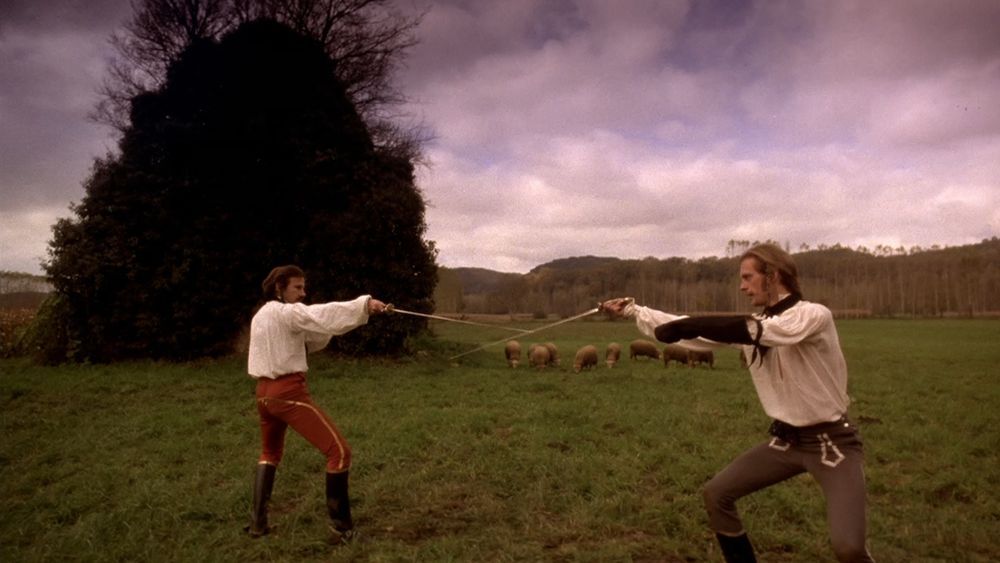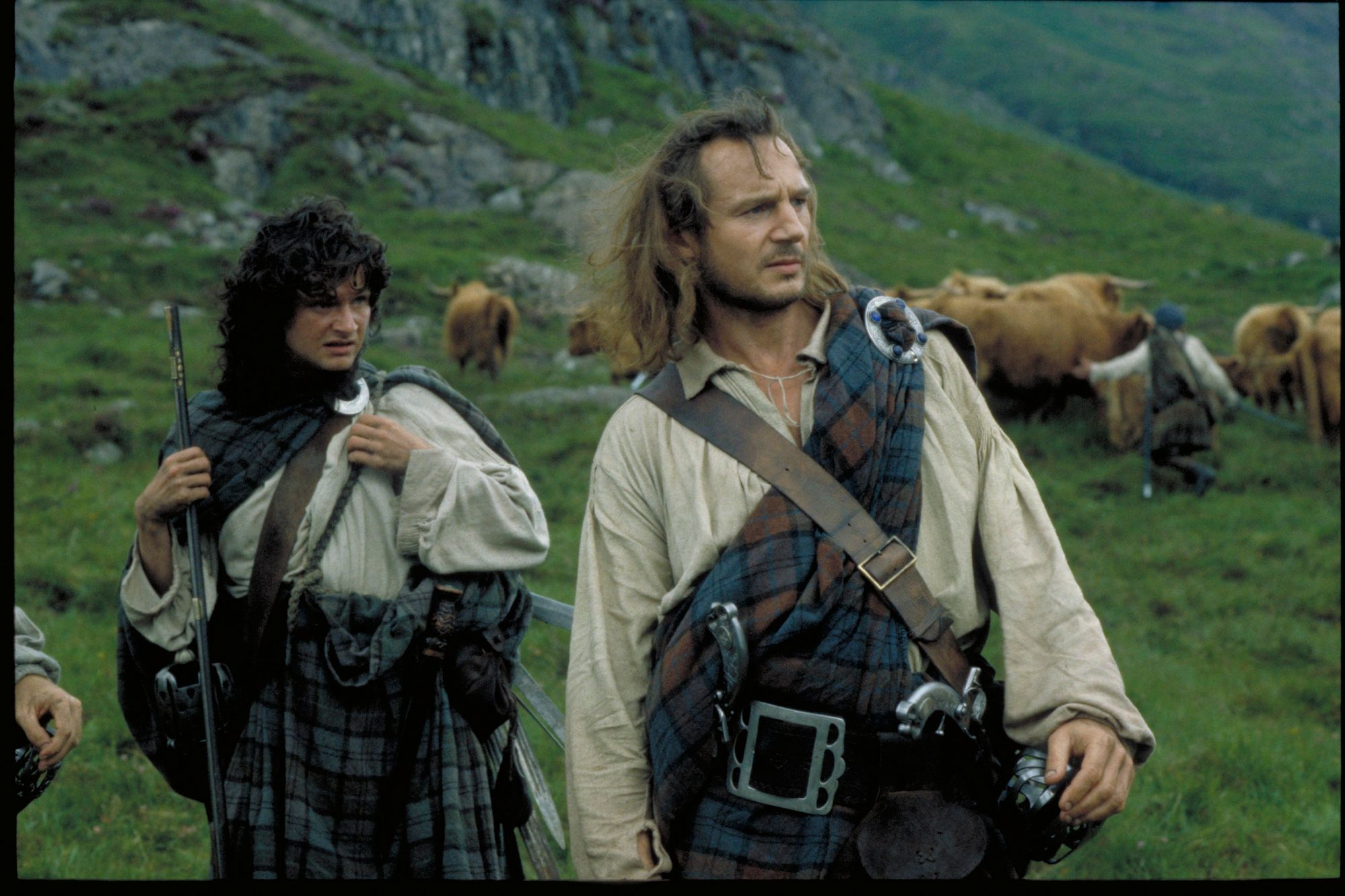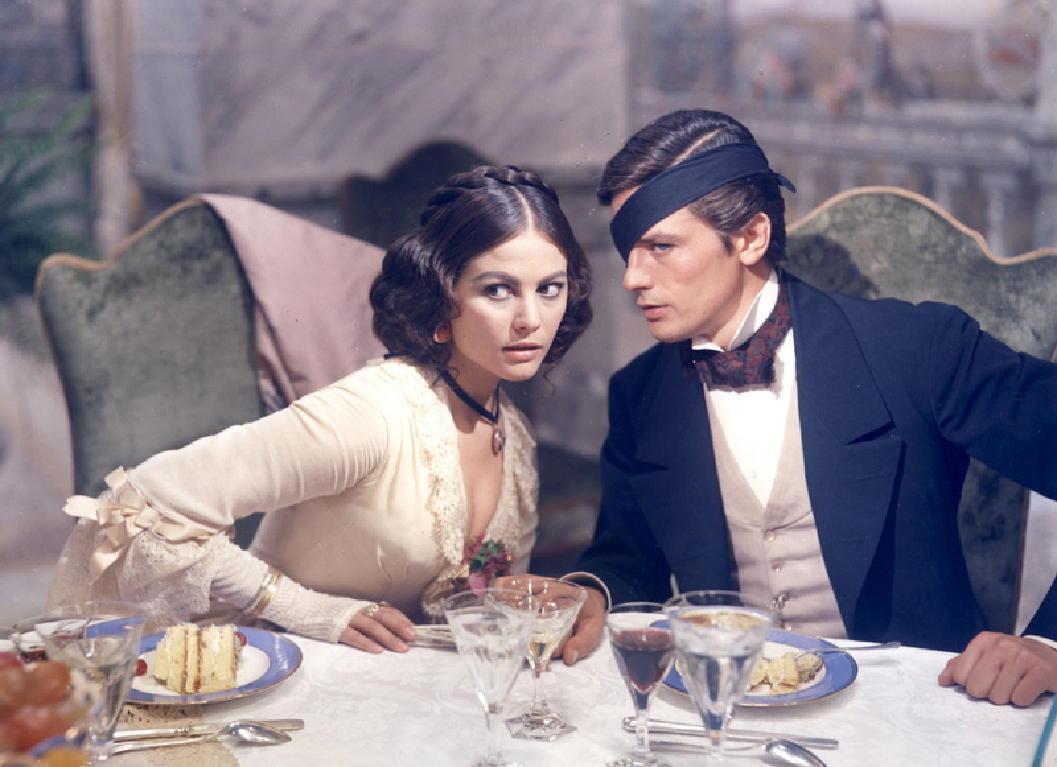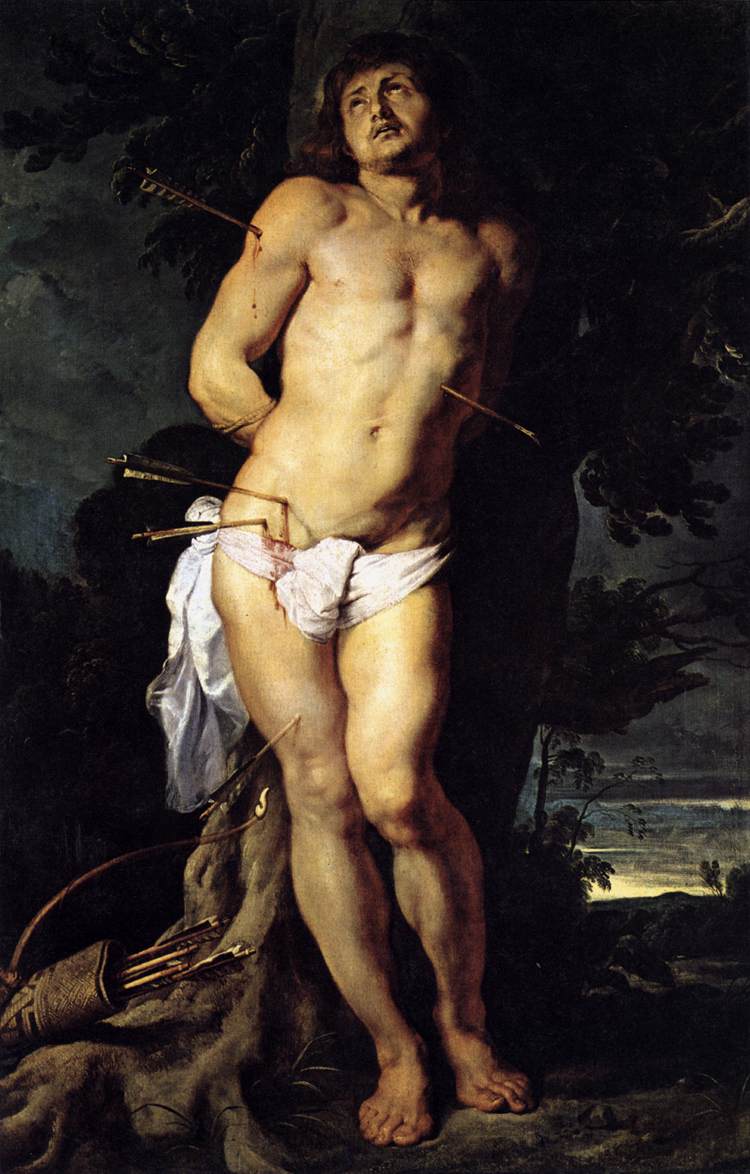A Brief History of the Bourgeoisie, or We Are All Bourgeois Now
The bourgeois is no longer just a particular type; it is the only type.

The term 'bourgeois' has almost always been--been one of contempt. Yet it is precisely the--the bourgeoisie which is responsible for--well, for nearly everything good that has happened in our civilization over the past four centuries. You know the French film, The Discreet Charm of the Bourgeoisie? When I first heard that title I thought, "Finally, someone's gonna tell the truth about the bourgeoisie." What a disappointment. It would be hard to imagine a less fair or accurate portrait.
I managed to annoy a bunch of people the other day, and not just because it was a day ending in “y.” What happened in this case was that the unfortunate (and apparently accidental) killing of a homeless man on the MTA generated some wide-ranging, if not exactly edifying, discussion. A video of a left-wing reporter arguing that concern for comfort and safety was essentially bourgeois circulated, to predictable online outrage.
I responded thusly:
Everyone is so mad at this lady, but she’s technically right: the desire for safety is indeed bourgeois. https://t.co/A21wEg0IhJ
— David Polansky (@polanskydj) May 5, 2023
This triggered a round of responses that can be summed up as: “the desire for peace and security is a human—not just a middle-class—one.” In particular, I saw a number of responses insisting that the desire and need for security is as universal as that for water and air. It would be hard to conceived of a clearer illustration of the ways that the horizons of modernity have enclosed us in such a way as to seem to comprise the universe itself.
The sticking point, I suspect, was the loose association that most people make between bourgeois and “middle-class” (with the latter itself being a vague and shifting signifier). More on this anon. But beyond that, “bourgeois” is an all-purpose term that covers a set of largely material possessions and aspirations, along with the particular qualities required to hold them, ably summed up in Trainspotting’s iconic closing monologue:
I'm gonna be just like you. The job, the family, the fucking big television. The washing machine, the car, the compact disc and electric tin opener, good health, low cholesterol, dental insurance, mortgage, starter home, leisure wear, luggage, three piece suite, DIY, game shows, junk food, children, walks in the park, nine to five, good at golf, washing the car, choice of sweaters, family Christmas, indexed pension, tax exemption, clearing gutters, getting by, looking ahead, the day you die.
None of this is wrong, really, but it is not exhaustive. And it is specifically limited in seeing only the end product of a long and quasi-universal process of embourgeoisement (I promise this is the last time I’ll use this term), while disregarding the comprehensive human changes that made it all possible.
To see the contours of that process, it helps a bit to reflect on the opposition to it, which in turn defined much of Western culture for the past two centuries. While bourgeois remains a term of disparagement in some circles, it is difficult now to remember how much more intense anti-bourgeois sentiment was in the not-too-distant past. Moreover, while we conventionally associate anti-bourgeois sentiment with the Marxist left (such as the comment that triggered this post in the first place), this is to forget that many of the most passionate bourgeoisophobes hailed from the right, and that their critique of the bourgeois was overall more substantial. Because the principled leftist critique was that the bourgeoisie were exploitative and unproductive—a charge that, however true, simply didn’t leave much for discussion—leftists would largely over time adopt the right-wing criticisms of the bourgeoisie (as dull, as complacent, as philistine, as petty, etc.) as their own.
Suffice it to say, the anti-bourgeois critique predates Marx by a good ways--indeed it is very nearly coextensive with the bourgeois type itself. This type had scarcely begun to dominate civil life in Europe before Jean-Jacques Rousseau could already describe him as follows:
Always in contradiction with himself, always floating between his inclinations and his duties, he will never be either man or citizen. He will be good neither for himself nor for others. He will be one of these men of our days: a Frenchman, an Englishman, a bourgeois. He will be nothing.
Note that this was written back in 1762, before the United States had even come into existence. Though Rousseau had nothing on the great French novelist Gustave Flaubert, who declared that the sight of the bourgeoisie made him want to simultaneously weep and vomit, and who was known to sign his letters in Latin: "GUSTAVUS FLAUBERTUS, Bourgeoisophobus.”
The bourgeois man—far more than capital—was the bête noire of Jean-Paul Sartre, a figure who is less regarded these days, but was in his time a public intellectual of considerable stature. Sartre’s own hatred of the bourgeois arguably went beyond anything required by a leftist economic program and likely played a role in his philosophical and political valorization of terrorism as an authentic alternative.
All this vituperation no doubt seems pretty excessive—like using a flamethrower to kill a fly—given that we’re just talking about a bunch of basically peaceable, tax-paying business owners and office workers. Whence the contempt?
The History Part
Here it is most useful to consider the more expansive definition of the bourgeois man as the figure who is chiefly motivated by the avoidance of violent death. As Georg Wilhelm Friedrich Hegel (following Thomas Hobbes) highlighted: bourgeois existence is characterized by the elevation of fear over virtue. Anyone who supposes that this merely describes the average individual has to contend with the historical record here.
We forget now that the establishment of the state itself—as with most settled societies—was part of a longer process by which dynastic warrior classes first established and then institutionalized and perpetuated their own authority. We can see aesthetic expressions of that ethos in many of the great works of world literature, from the Iliad to the Bhagavad Gita to the Norse Sagas. Even much of the Hebrew Bible—as Nietzsche points out—amounts to the war song of the ancient Jews.
When we think of aristocrats today, we mostly picture the trappings: fine clothing and jewelry, lavish castles, courtly manners, elaborate social hierarchies, and so on. But this is to focus only upon the (not infrequently inbred) heirs of this lineage, which originated not with lobster forks but with battle axes. This is not to insist (as some, like Charles Tilly, do) that ruling castes are essentially predatory mafias, and kings and princes mere gangsters. For one thing, few societies resemble Mad Max Beyond Thunderdome. Power requires means of legitimation beyond saying “because I can.” Hence, among other things, the extensive honor cultures that have surrounded most warrior classes, from Japanese samurai to English knights, and hence also the partnerships that historically arose between political rulers and priestly and clerical classes.
The social and political position they enjoyed was most visibly associated with the material finery and high culture that they both owned and patronized, but as military historian Michael Howard points out, “until the mid-eighteenth century these princes still derived their prestige, however, remotely from their status as warrior leaders, and were depicted as such in court iconography.” This is why dueling remained such a mainstay of aristocratic society.

Recall that while Les Liaisons Dangereuses largely concerns the erotic dalliances of foppish-seeming aristocrats, it climaxes with a fatal duel for a reason: Valmont remains true to his class and protocols of honor must still be observed, even by sybarites. (On this point, I highly recommend watching the great and still underrated Neeson adaptation Rob Roy, which poses the question: what happens when the decayed honor culture of Hanoverian England comes up against the still vital honor culture of the Scottish highlanders?)

The destruction of the ancien régime in France in 1789, along with the less catastrophic revolutions throughout 19th-century Europe marked the formal end of aristocratic primacy, This is the theme of Il Gattopardo, one of my all-time favorite novels: how one such aristocratic family makes its peace with the ascendance of the bourgeoisie during the unification of Italy (for the George Costanzas among you, Visconti’s adaptations is superb, and it’s not hurt by featuring the luminous Claudia Cardinale in her prime…).

Nonetheless, its customs endured among its heirs, as indicated by their higher mortality rate in WWI. Fully 800 British men of title died in battle within the first 16 months of that terrible war.
All this said, the association of citizenship and war is not limited to aristocracies. In relatively rare instances, settled societies resolved into less hierarchical political communities, like the Greek poleis and the Roman republic. But even these maintained a strongly martial outlook, engaging in near-constant warfare with their neighbors, and courage in battle was valued well above comfort and self-preservation. (We probably most associate this ethos with the Spartans, but even a brief look at Pericles’ Funeral Oration will indicate that it was hardly limited to them.)
By the same token, the Christian saints abjured the violence of pagan life—from gladiatorial combat up to imperial conquest—but as the stories of their lives (and deaths) make clear, they hardly prioritized security and self-preservation. Their greatest model after all was Himself a martyr.

The insistent denial of “the things of the world” when measured against eternal salvation in a non-earthly paradise was and is a central element of Christianity, and it found its most pungent expression in the willingness of martyred saints to withstand physical mortification while cleaving to their faith (needless to say, this phenomenon is hardly limited to Christianity, as the example of the Sikh gurus might attest).
Suffice it to say none of this is evinces an embrace of security and comfort as such, however much any given individual might be so inclined. What happened then? In a word, modernity. Beginning with Thomas Hobbes, a slew of thinkers encouraged us to begin to think of ourselves as material beings primarily concerned with staying that way. “The genesis of Hobbes's political philosophy is nothing other than the progressive supplanting of aristocratic virtue by bourgeois virtue.” Hobbes’ (and later Locke’s, Smith’s, et al.) thought is premised upon a rejection of both the pagan warrior ethos (which survived in modified form under medieval Christianity) and Christian piety. And in a curious sense, it combined the this-worldly outlook of the pre-Christians with the pacific understanding of the Christians to produce a harmonious version of materialism.
Getting us this to this point entailed what Nietzsche would call a “transvaluation of values”: a comprehensive reassessment of all that we most esteem in life. This entailed a substantial and lengthy project of education in conjunction with novel ideas concerning the possibility of scientific and technological advancement. What Francis Bacon would famously refer to the as the “ease of man’s estate.” Thus, we came over time both to see ourselves as creatures primarily desiring comfort and safety over pain and fear and to increasingly possess the means to ensure former over the latter.
Over time, we internalized this understanding such that it became difficult to comprehend that this was ever not the case, and we pathologize the kinds of behaviors historically associated with militaristic honor cultures (it doesn’t help that many of those behaviors are in fact pathological, at least as expressed in the modern world). It’s not that the bourgeoisie doesn’t historically signify an economic class as well, it’s rather that the existing class of traders, shopkeepers, bankers, and so on epitomized the particular qualities that a pacified society would require to flourish. And indeed that is more or less what happened, as they came to dominate the societies they belonged to.
And this project is more or less global. Japan since the Second World War offers something like a microcosm of this universal process, wherein within a matter of decades one of the most martial cultures the world has ever known gave way to one of the world’s lowest-crime societies along with a political economy dominated by cooperative salarymen.
To sum up, we can say that all living species possess a survival instinct, without which they soon won’t be a species anymore. But to call this the universal core, the essence of what it is to be human would be astonishing news to the Spartans at Thermopylae, medieval knights, Christian saints, Japanese Bushido, Indian Kshatriyas , Comanche cavalry fighters, the unconverted Jews at Masada, and so on and on. It is to unthinkingly accept Hobbes’ account of our natural selves and to equate the bourgeoisie with humanity simply. Indeed, it represents the clearest victory of the bourgeois.
Back to Today
Today we primarily understand the bourgeoisie in Marxist terms. But the Marxian focus on the working class has obscured the reality that they are qualitatively indistinguishable from the bourgeoisie in their basic aims: the preservation of basic security and the acquisition of material comforts. That an investment banker has relatively greater access to both than a drywaller doesn’t change the underlying shared basis for existence. This not incidentally has much to do with the general failure to produce a workers’ revolution over the past century, as well as the fact that radical violence in nearly all cases has been led by disaffected intellectuals rejecting the prerogatives of their own class.
One of the dilemmas of contemporary liberalism is that it is heir to this tradition—indeed we have become ever more safety-oriented in many respects, from managing children’s activities to policing speech. My (fairly ordinary) childhood was replete with freedoms now denied to the majority of American children today for their own security. Yet at the same time, our elite institutions and discourse continue to draw upon certain philosophical strains of leftism, which were anti-bourgeois to the core (the Nietzschean right was anti-bourgeois as well, but since the Second World War this tradition has been out of favor for obvious reasons, which is at least part of the reason it has popped up so strongly on the less regulated corners of the internet).
In any case, to the extent that threats to individual security come disproportionately from lower classes (as they do), this creates no small amount of cognitive dissonance, as the (liberal) bourgeois impulse to preserve safety comes up against the (also liberal) bad conscience about enforcing bourgeois prerogatives against a subordinate class. That this class is not really a working class or proletariat in any meaningful sense, but is frequently something more like an underclass, does not much seem to assuage that guilt.
A couple of decades ago, when post-Marxist philosophers Michael Hardt and Antonio Negri released their much-celebrated tome Empire, several critics remarked how they located the vanguard of revolutionary fervor among the class that Marx would have termed the lumpenproletariat: petty criminals, homeless, drug-users, prostitutes, and the like. Marx’s point was that this underclass would be of little use in fashioning an effective proletarian revolution. But Hardt and Negri were simply writing at a much later time in history—one in which they had fewer alternatives to the ubiquitous and much-loathed bourgeoisie. The lumpenproletariat was their only available option when it came to recruiting foot soldiers to make war against the vast capitalistic monolith they termed “Empire.” And the reason for this is that by 2000, it was frankly difficult to identify a multitude of people that were not essentially bourgeois (in aspiration, if not in fact).
All of which is to say, at the time of this writing, anyone reading these words is effectively bourgeois: at one end of the scale, no amount of money, cocaine, yachts, private jets, high-end prostitutes, etc. changes the qualitative fact that their lives are oriented toward material gain and away from violence and fear; Jeff Bezos, Mark Zuckerberg et al. share basic presumptions with the mass of Americans in a way that William the Conqueror or the Kangxi Emperor did not with their respective subjects. At the other end of the spectrum, working class bona fides do not cash out as a disregard for those same presumptions: that material gain is desirable, and loss of life and security are not, and questions of honor or mastery are neither here nor there.
To return to the the original impetus for this post, it is conceivable that our towns and cities will become more dilapidated and crime-ridden (though they’ve some ways to go before they reach the worst of the ‘70s and ‘80s), but there remains a difference between rationalizing decline and consciously rejecting the bourgeois ethos that has increasingly defined modern society for the past several centuries now. The periodic statements we still get dismissing concerns about public safety as so much small-minded middle-class prejudice are but a pale shadow of that old-time anti-bourgeois religion.
It would be a mistake, in any case, to equate these highly public pronouncements for a rejection of bourgeois survival in favor of honor-seeking behavior. What is on display is not a genuine embrace of danger in the spirit of a warrior, but rather the denial that such danger exists in the first place and the insistence that those who associate danger with X city or Y neighborhood are not just cowardly but likely prejudiced.
The question of danger then is not an object of philosophical difference; it has rather become the focus of quintessentially bourgeois status games. Complaining or the refusal to complain about crime and its associated dangers are merely tools of social sorting that have acquired an ideological valence in recent years. All of these are part of what Allan Bloom called “the bourgeois' need to feel that he is not bourgeois, to have undangerous experiments with the unlimited.”
Or, as that noted philosopher Ron Burgundy put it:

